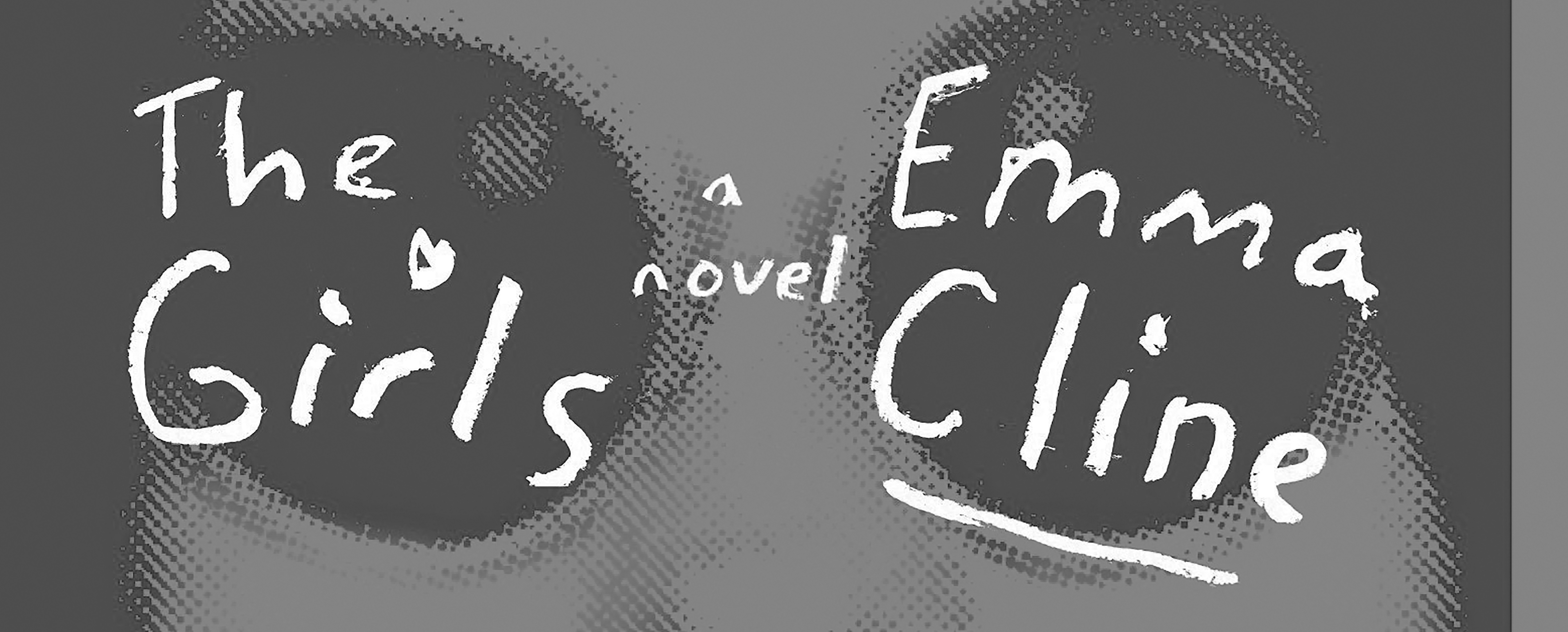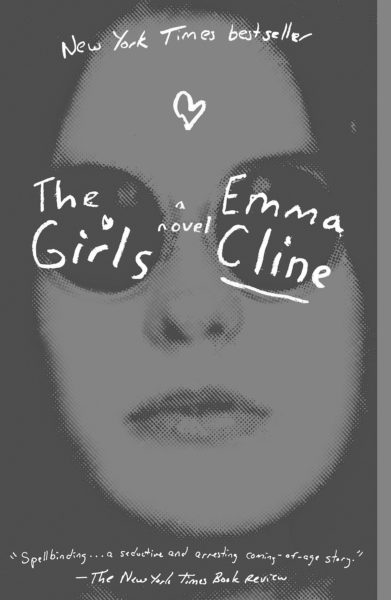Celeste Powell
Staff Writer
Spoiler alert: Can truly intimate connections only be fostered between girls?
“The Girls” by Emma Cline explores this question by centering the novel around a fictional girl’s entanglement with a cult loosely based on Charles Manson’s.
At age fourteen, Evie Boyd becomes hyper-critical about appearances.
Specifically, other girls.
Evie finds herself judging her long-time friend, Connie, noticing her too-tight shorts leave an angry red rim on her thighs.
Evie is seeking a form of existence larger than the lethargic small town of California where her next year of school will be spent in an all-girls boarding school.
Seeing her parent’s divorce first hand, Evie craves a connection—a type of connection different from her father’s formal conversations that fail to hide his newfound happiness after the divorce, different from Connie’s dull loyalty.
At a community barbeque, Evie catches her first glimpse of Suzanne.
Evie describes her as not beautiful in a conventional way, but striking.
Suzanne is with a few other girls, and although they are obviously not sisters, their closeness surpasses that of a simple friendship.
As Evie watches Suzanne and the other girls, collect food from a dumpster.
Evie wonders what situation these girls are in to reduce themselves to dumpster food.
When Evie’s friendship with Connie ends in turmoil, Evie’s saving grace is seeing Suzanne again.
This time Suzanne is reprimanded by a shop owner for stealing. Suzanne leaves, unable to buy the toilet paper she needed. Evie chases her into the parking lot and promises she’s steal the toilet paper for her. But before Evie leaves the shop, she puts money on the counter.
When Evie meets the Manson-like Russell, she sees how presence affects his family.
Russell is placed on a pedestal as an all-knowing and wise individual.
One of his many talents include his artistry that has guaranteed him a record deal from famous artist Mitch Lewis.
Evie gets closer to Russell’s family and spends time on their farm.
Her first personal encounter with Russell, the family’s leader, happens at their Summer solstice party where she is invited to his room.
Evie isn’t a prude she’s done some things, even if they were never quite sex.
She’s experienced the rough, impersonal way a teenage boy pushes his hand down her shorts.
She’s gone through the motions with boys, the motions of what are supposed to bring pleasure to girls. But none of those actions come close to what she imagines by herself.
In her father’s adult magazines, her favorite is a naked girl with a ribbon around her neck tied in a bow.
Evie describes her plight of accepting her sexual orientation as a repentant who shows sorrow for their obvious wrongdoings.
She goes as far as to force herself to imagine Connie’s brother as a “corrective” to her desires.
She states how this immediate reaction repulses her.
There is a certain level of devotion and sincerity that cannot always be reached with boys—someone you could share your deepest thoughts and most embarrassing moments without fear of being told we’re crazy and ultimately being left behind by a boy.
Evie explains how most of a teenage girl’s want for love is a willful act, “trying so hard to slur the rough, disappointing edges of boys into the shape of someone we can love.”
As an adult, Evie recognizes that a teenage girl’s “love” is forced and impersonal.
More of a theatrical performance then true emotions.
But with Suzanne, Evie finds something deeper.
Suzanne captivates Evie and puts her under a spell, making Evie willing to do anything for Suzanne.
Evie steals money from her mother’s purse and breaks into a childhood friend’s house with the girls.
Evie is forced to temporarily live with her father after getting caught, miles away from Suzanne and the family.
Once the want for Suzanne gets unbearable, Evie decided to hitchhike back to the ranch.
Upon her arrival, Evie notices the decaying nature of the house and even the family themselves.
Russell and the family were counting on his record deal to propel them into wealth and fame to spread their ideals. Mitch Lewis failed the family.
Having not given Russell the record deal, the family seeks revenge and is led by Suzanne.
Evie hastens to go to make up for lost time with Suzanne.
Evie recounts her naïveté having known the crime the family would commit, but not wanting to believe it.
Almost before it’s too late, Suzanne stops the van and forces Evie to get out.
In the news, Evie will see the mugshot of Suzanne and the rest of the family charged with murdering three adults and one child.
Forty years later, Evie still thinks of Suzanne who is rotting in jail.
Evie’s has no regrets and escapes the family with only an ache that Suzanne once cured.
Evie reflects in her borrowed house, alone, “you wanted things and couldn’t help it… how could you ever tell yourself what you wanted was wrong?”
As a girl, so much of our lives are centered on having a best friend. Unlucky for me, I didn’t have the close relationships I wanted coming into college.
I constantly found faults in myself for not having the best friend that other girls had.
I ached for closeness. I cried wasted tears over things I could not personally change.
Throughout my senior year of high school, I had the misfortune of losing two of my closest friends.
The separation was not amicable.
I felt tormented around our mutual friends who believed I was the one at fault.
Teenagers often believe that anything bad that happens will bring the end of their world.
Reading “The Girls” right after graduating high school made me realize that my experiences at age 18 weren’t isolated.
“The Girls” holds a special place in my heart by opening my eyes to the fact that we all aren’t struggling alone.
Emma Cline put into words the emotions I felt while I couldn’t. I rate the book 10/10.


